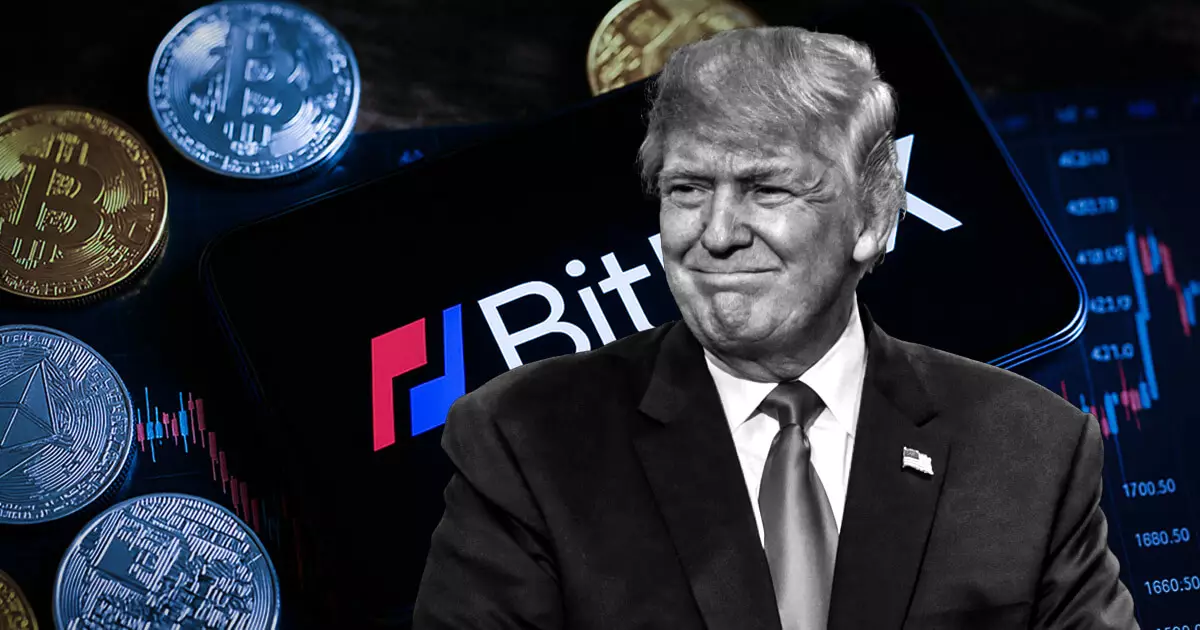In an era where digital currencies threaten to redefine the traditional financial landscape, few platforms have made both waves and controversies like BitMEX. Founded in 2014, BitMEX quickly became a titan in the cryptocurrency exchange arena, known for its high-leverage trading products and minimal registration hurdles. Traders flocked to the platform, drawn by the promise of substantial returns that only the world of crypto could offer. However, with great power comes great responsibility, and BitMEX’s founders soon found themselves at the center of a storm that would expose the vulnerabilities in the burgeoning crypto ecosystem.
The exchange’s failure to implement proper anti-money laundering (AML) practices did not go unnoticed. By allowing U.S. customers to trade without thorough identity checks, BitMEX drew the ire of federal regulators, who branded it as a beacon for illicit financial behavior. The Department of Justice and the Commodity Futures Trading Commission (CFTC) launched investigations, culminating in legal actions that would change the course of the founders’ lives forever. The fallout included probation sentences, hefty fines, and now, a controversial pardon from former President Donald Trump.
The Political Implications of the Pardons
On March 27, President Trump granted full pardons to the three co-founders of BitMEX: Arthur Hayes, Benjamin Delo, and Samuel Reed. This decision is, at its core, reflective of a profound political sentiment that resonates with center-right wing liberals—one that prioritizes innovation over heavy-handed regulation. While many on the left may view the pardons as undermining the rule of law, there’s an argument to be made that the enforcement of outdated AML regulations against pioneers of a burgeoning industry stifles technological advancement.
Delo’s comments following the pardons emphasized this perspective: he posited that the legal framework governing cryptocurrencies is antiquated and prioritized persecution over progress. In a sector that evolves almost on a daily basis, rigid regulations are more likely to hinder rather than help. Thus, rather than viewing these pardons strictly through the lens of legality, it’s crucial to consider their implications for the future of the cryptocurrency industry.
A Question of Accountability
However, the pardons raise critical questions about accountability and responsibility. By absolving the co-founders of their legal transgressions, a dangerous precedent is set: that financial leaders may evade consequences for knowingly ignoring compliance regulations. It’s essential to acknowledge that while the intention of innovation is noble, it cannot come at the cost of regulatory adherence.
The legal system, flawed as it may be, serves a crucial role in maintaining the integrity of financial systems. The founders of BitMEX admitted to breaking the law, which enhances the troubling nature of these pardons. Are we willing to allow figures in influential positions to bypass accountability simply because they are “visionaries”? Such leniency could foster an environment where compliance becomes an optional discussion, rather than a mandatory practice.
The Narrative of ‘Victimhood’
The trio’s assertion of having been “made to serve as an example” is also worth scrutinizing. The narrative of victimhood often serves to rally public sentiment; however, it must be challenged rigorously. Since when did breaking the law equate to oppression? Their hardship, while perhaps significant, stems from decisions they consciously made in pursuit of profit. This kind of framing does a disservice to countless individuals and businesses striving to adhere to regulations while innovating within the law.
It’s vital to recognize the nuance here. Advocating for progressive regulations that can nurture innovation in the crypto space is important, yet it must be grounded in responsible practices. Ignoring historical context only serves to undermine both the integrity of the legal system and the future of responsible financial innovation.
The Future of Cryptocurrency Regulation
As the cryptocurrency market continues to expand, the challenges surrounding regulation will only intensify. Pardon or no pardon, the actions of BitMEX’s founders highlight pressing concerns about regulatory frameworks that must evolve to keep pace with technological advancements. The industry requires not only champions of innovation but also steadfast advocates for ethical compliance.
In this rapidly changing landscape, the balance between enabling innovation and maintaining the integrity of financial systems will be paramount. While the BitMEX pardons may represent a step towards asserting innovation over regulations, careful scrutiny and thoughtful reforms are critical to ensuring a flourishing yet accountable digital finance ecosystem.













